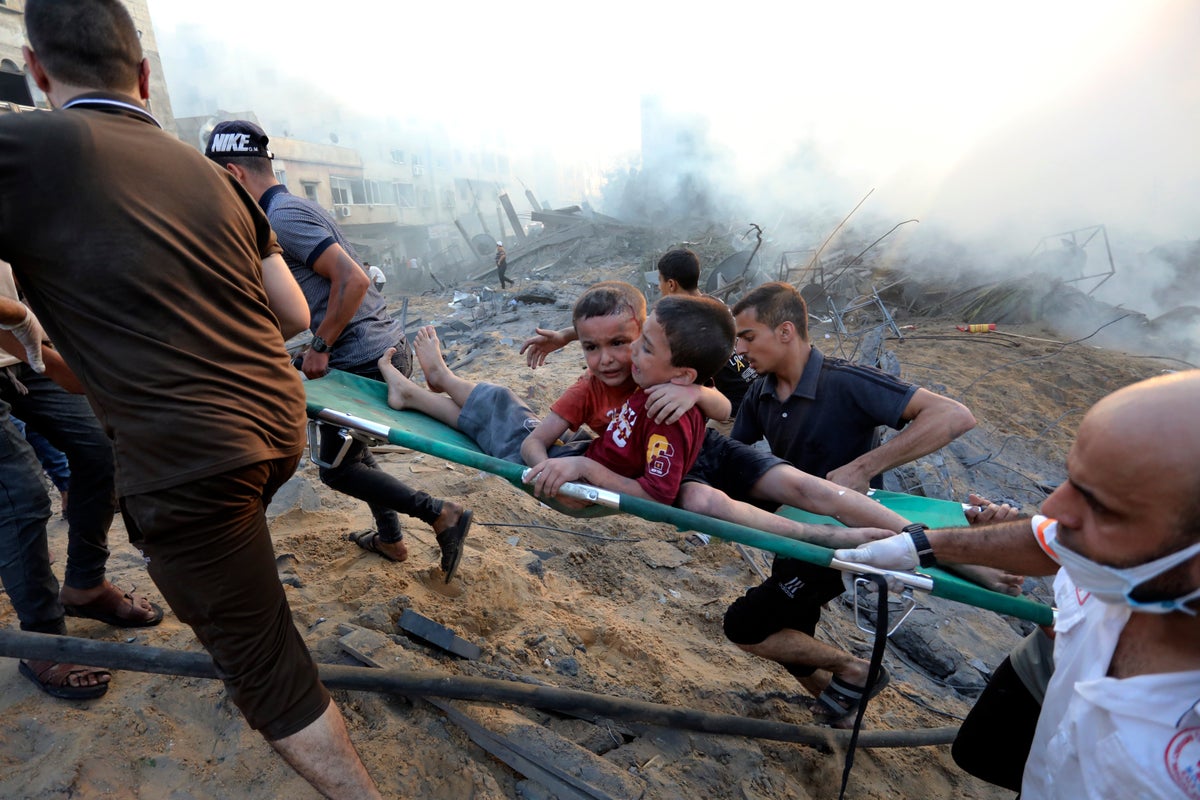
Al-Jazeera's chief correspondent in the Gaza Strip, Wael Dahdouh, was helping broadcast live images of the besieged territory's night sky when he received the devastating news: His wife, son and daughter had all been killed in an Israeli airstrike on Wednesday.
Moments later, the Qatari-based satellite channel switched to footage of Dahdouh entering al-Aqsa hospital in Gaza before giving way to grief as he peered over the body of his dead son.
“They take revenge on us in our children,” he said, kneeling over his son’s bloodied body, still wearing his protective press vest from that day’s work.
The video was sure to reverberate across the Arab world, where the 53-year-old journalist is well-known as the face of Palestinians during many wars. He is revered in his native Gaza for telling people's stories of suffering and hardship to the outside world.
According to Al-Jazeera, Dahdouh's family members were killed by an Israeli airstrike that hit Nuseirat Refugee Camp, located in an area of Gaza where the military had encouraged people to go to stay safe. It said a number of other relatives were still missing, and it remained unclear how many others were killed.
Dahdouh’s family were among the more than 1 million Gaza residents displaced by the war, now in its 19th day, and were staying in a house in Nuseirat when the strike hit, the network said.
The Israeli strikes have killed more than 6,500 Palestinians, Gaza's Health Ministry says. The Associated Press could not independently verify the death toll.
The fighting has killed more than 1,400 people in Israel — mostly civilians slain during the initial Hamas attack, according to the Israeli government.
Late Wednesday, Al-Jazeera replayed the moment Dahdouh was informed about the deaths. In an audio recording he is heard picking up a phone and telling a frantic caller multiple times: “Who are you with?”
Earlier, Dahdouh was on air, covering the aftermath of a separate strike that had killed at least 26 people, according to local officials. Throughout the war, Dahdouh has remained in Gaza City, despite Israeli calls for residents to head south ahead of an expected ground offensive.
Hundreds of thousands of people have fled to Nuseirat and other locations in central and southern Gaza, believing them to be safer. But Israeli strikes have continued to pound these areas, which are suffering dire shortages of water, medicine and fuel under an Israeli siege.
“This is the safe area which the occupation army talked about, the moral army,” said Dahdouh with bitter sarcasm to a fellow a Al-Jazeera reporter at the al-Aqsa hospital.
In a statement, Al-Jazeera said Dahdouh’s family “home was targeted” in an “indiscriminate assault by the Israeli occupation.”
The Israeli army had no immediate comment. It says it strikes only Hamas military targets, but the Palestinians say thousands of civilians have died. Israel accuses Hamas of using civilians as human shields.
Israel has threatened to shut down Al-Jazeera over its coverage of the war. Al-Jazeera is a Qatari state-owned media network, and is deeply critical of Israel, particularly its treatment of Palestinians.
Over the last week, the gas-rich nation of Qatar has emerged as a key intermediary over the fate of more than 200 hostages captured by Hamas militants during their Oct. 7 assault. Qatar has hosted Hamas’ political office in its capital of Doha for over a decade. The capital, Doha, is home to Ismail Haniyeh, Hamas’ supreme leader, and also Khaled Mashaal, Haniyeh's predecessor.
Four of the hostages have been released, a mother and daughter on Friday and two more on Monday. In an interview with Sky News this week, Mashaal said all Israeli hostages could be released if Israel stopped its arial bombardment of the Gaza.







